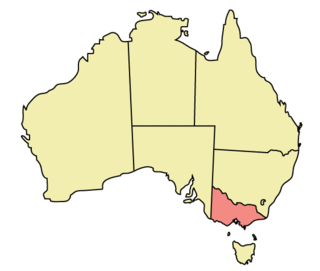 W
WContainer deposit legislation (CDL) also known as a Container Deposit Scheme (CDS) is a scheme that was first implemented in South Australia in 1977 and over the decades has spread to the Northern Territory in 2012, New South Wales in 2017, the Australian Capital Territory in June 2018, Queensland in November 2018 and Western Australia in October 2020. Schemes in the remaining states are due to commence in Tasmania in 2022 and Victoria in 2023.
 W
WThe Clean Energy Act 2011 was an Act of the Australian Parliament, the main Act in a package of legislation that established an Australian emissions trading scheme (ETS), to be preceded by a three-year period of fixed carbon pricing in Australia designed to reduce carbon dioxide emissions as part of efforts to combat global warming.
 W
WThe Environment Protection and Biodiversity Conservation Act 1999, long title An Act relating to the protection of the environment and the conservation of biodiversity, and for related purposes, is an Act of the Parliament of Australia that provides a framework for protection of the Australian environment, including its biodiversity and its natural and culturally significant places. Enacted on 17 July 2000, it established a range of processes to help protect and promote the recovery of threatened species and ecological communities, and preserve significant places from decline. The EPBC Act is as of June 2020 administered by the Department of Agriculture, Water and the Environment. Lists of threatened species are drawn up under the Act, and these lists, the primary reference to threatened species in Australia, are available online through the Species Profile and Threats Database (SPRAT).
 W
WIt is an "Act to institute a system of environmental planning and assessment for the State of New South Wales".
 W
WThe Flora and Fauna Guarantee Act 1988, also known as the FFG Act, is an act of the Victorian Government designed to protect species, genetic material and habitats, to prevent extinction and allow maximum genetic diversity within the Australian state of Victorian for perpetuity. It was the first Australian legislation to deal with such issues. It enables the listing of threatened species and communities and threats to native species, and the declaration of critical habitat necessary for the survival of native plants and animals.
 W
WThe phase-out of lightweight plastic bags in Australia is being implemented by the states and territories rather than nationally, with plastic bag bans implemented in all jurisdictions except New South Wales, where it remains under discussion.
 W
WThe Threatened Species Conservation Act 1995 was enacted by the Parliament of New South Wales in 1995 to protect threatened species, populations and ecological communities in NSW. In 2016 it was replaced by the Biodiversity Conservation Act 2016. These acts form the basis and the mechanisms in NSW by which species, populations and ecological communities are declared endangered, vulnerable or critically endangered, and under which people and corporations are prosecuted for destruction of habitat sheltering such species, populations or communities. The Act was repealed by the Biodiversity Conservation Act 2016 (NSW).
 W
WThe Wild Dogs Act, initially passed in 1912, was a piece of South Australian legislation regarding wild dogs and dingos in Australia, and subtitled An Act to provide for the Destruction of Wild Dogs. This act led to an economy of dingo scalping to collect bounties.
 W
WThe World Heritage Properties Conservation Act 1983, was an Act of the Parliament of Australia which provided for certain protections for World Heritage listed places.